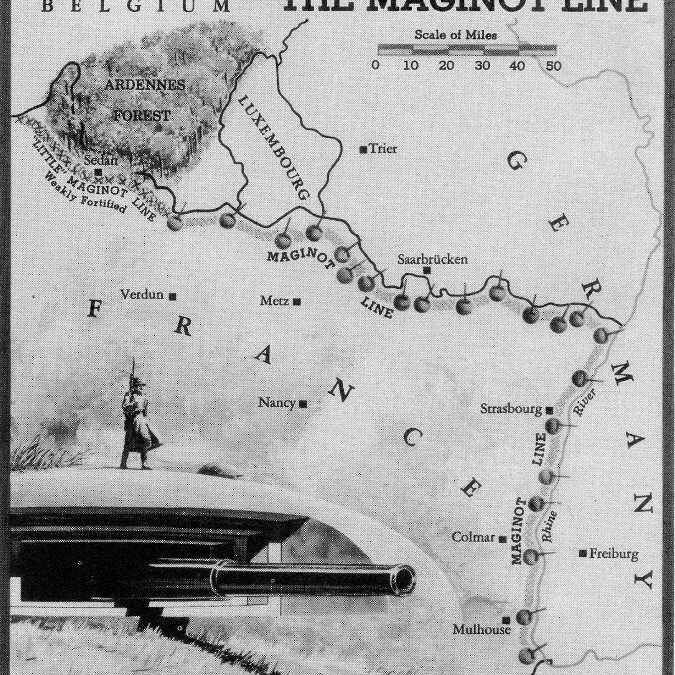
by Teodora | Jan 21, 2021 | Change
Was drücken Metaphern wie „mit dem Rücken zur Wand stehen“ oder „in eine Ecke gedrängt werden“ aus? Die Bedeutung ist klar: man befindet sich in einer fixen und somit schwachen Position.
Wie gerät man in eine solche Position? Dies kann in sozialen Interaktionen geschehen, etwa in einem Gespräch, als Ergebnis einer Gruppendynamik. Besonders ausgeprägt, sogar aggressiv, kann eine solche Dynamik sein, wenn unterschiedliche Interessen im Spiel sind.
Wie kann man dem entgegenwirken, sich davor schützen und vielleicht sogar die Dynamik umkehren?
Zuerst muss man sich bewusst werden, wieso dies geschieht. Es geht um Kontrolle über die Dynamik. Wer ist am längeren Hebel, so zu sagen. Jemanden in eine fixe Position zu locken macht ihn unbeweglich und somit schwach, eine flexible Position hingegen gibt mehr Handlungsraum und ist deshalb stärker. Stärke im Gespräch bedeutet, Kontrolle über die Interaktion zu haben. Das stellt das Gegenüber vor eine Herausforderung. Die Herausforderungen kommen in der Regel in der Form von Fragen.
Ganz einfach, wer Fragen stellt, kontrolliert das Gespräch.
Im Folgenden wird auf die häufigsten Gründe eingegangenen, warum dies angestrebt wird.
1. Aus Gewohnheit
Es gibt Menschen, die einfach immer kontra sein müssen. Man sagt „weiss“, sie sagen schwarz“. Es wäre kontraproduktiv, sich in eine Argumentation verstricken zu lassen. Es gibt bessere Wege, die Dynamik umzukehren. Zum Beispiel:
– Vage einverstanden sein: „Ja, es ist möglich, dass sie Recht haben.“
– Beide Versionen vorschlagen: „Sie können das tun…, oder auch nicht“.
– Dem Oppositionisten eine wichtige Rolle innerhalb der Gruppe zuteilen: „Herr Meier, sie ziehen alle Perspektiven in Betracht, Ihrer Aufmerksamkeit entgeht nichts, vielen Dank! Weiter so!“
2. Das Gegenüber hat eine wunde Stelle und leidet darunter
Etwas, was Sie gesagt haben, löst Angst, Schmerz oder andere negative Emotionen aus. Finden Sie heraus, was das ist und helfen Sie, es zu lösen. Dazu müssen Sie Fragen stellen um mit der Information weiter arbeiten zu können. Es kann auch sein, zum Beispiel, dass eine Frage indirekt eine andere Frage stellt, eine, die sich das Gegenüber unwohl fühlt zu stellen. Zum Beispiel: wenn mich mein Sohn fragt, wann ich ins Yoga gehe, weiss ich, dass die wirkliche Frage lautet: wann kann ich PC-Spiele spielen?
– Finden Sie heraus, um was es sich handelt. Es helfen Fragen wie „Meinen Sie das oder das?“ oder „Würden Sie bitte die Frage wiederholen?“ Es kann sein, dass die Frage dabei umformuliert oder umgedeutet wird, so dass man eine ganz andere Frage behandeln muss. Wichtig ist nur, Gegenfragen zu stellen, weil dann das Gegenüber Inhalte produzieren muss. Es soll jedoch nicht wie ein Angriff rüber kommen. Lassen Sie sich nicht emotional einziehen. Bleiben Sie gelassen, respektvoll und angenehm interessiert: „Scheinbar ist Ihnen das wichtig, ist es OK für Sie, wenn ich ein Paar Fragen stelle, um mehr darüber zu erfahren?“
– Wenn Sie merken, dass das Gegenüber sich zurückzieht, halten Sie es im Prozess engagiert. Dabei helfen Komplimente und Schmeicheleien: „Sie sind ein sehr intelligenter, erfolgreicher Mensch.“; oder Sie können den Eigennutzen des Gesprächspartners hervorheben.
– Stehlen Sie die Muster und machen Sie genau das, was der Gesprächspanter mit Ihnen probiert, Druck durch die Fragen aufzubauen. Jetzt, wo Sie auch das Erlaubnis haben, Fragen zu stellen, proben Sie weiter: „Ist die Frage dies oder ist die Frage das?“ „Sie meinen sicherlich das, ist das richtig?“ Jetzt muss das Gegenüber Infos liefern und sich selbst in eine Position begeben.
– Die Dynamik unterbrechen und in eine andere Richtung lenken: „Sie haben vorher etwas sehr Interessantes gesagt, können Sie noch mehr dazu sagen?“
3. Skeptizismus
Das kann bei den obigen Situationen ein Unterton sein, zum Beispiel „Das funktioniert nicht.“ Werden Sie nicht defensiv, drehen Sie das Skript um in dem Sie Fragen stellen, so dass jetzt die Anderen ihre Position verteidigen müssen:
„Verzeihung, ich bin wirklich sehr interessiert zu erfahren, warum Sie das sagen?“ Wie kommen Sie darauf dass…?“
Die bisherigen Beispiele haben gezeigt, dass um aus einer schwachen Position zu kommen, man die Kontrolle über die Gesprächsdynamik erlangen muss. Am Einfachsten geschieht das über Unterbrechungen, Fragen und Gegenfragen. Das kann und soll respektvoll und höflich getan werden, damit das Gegenüber zu Kooperation bewogen wird.
© 2021 Teodora Rudolph

by Teodora | Nov 18, 2020 | Change
Vujà-dé is the opposite of the know-it-all-seen-it-all experience of déjà-vu (from French meaning already seen).
Vujà-dé is the experience of seeing familiar things and saying: I never thought about it this way! I never felt like this before! This is something new! I’ve never seen this in such light! We all love this feeling, don’t we?! We would go to great lengths to seek it, even if it means exposing ourselves to risks.
Children live in a vujà-dé world because, with their limited life experience, everything is new to them. They explore the world with positive curiosity expecting good things to happen! They build associative bridges between the known and the unknown and this is their natural learning process. And at some point, another natural process kicks in: habitability. The longer we live, the more experiences we have, the more tempting it is to rely on preconceived ideas based on what we’ve seen already.
Imagine you would cultivate this natural child’s curiosity and approach the familiar things in your life with it! Imagine how your life would change if you go about your day looking for the new, the unknown, the unexplored and the special in the most familiar situations? How would your experiences be different? How would you be different?
Sometimes vu-jàdés happen naturally and unexpectedly and people call them Aha-moment! We all have had sudden realizations or a creative ideas the resolve old problems. Where do these come from? Wouldn’t it be nice to have more of them?
Guess what, it is totally natural for us to have vu-jàdés! Think about it this way: your body is constantly renewing itself, every cell in your body is younger than you, one million cells die every second and this means that in one day, approximately 1.2 kg of cells die and your body produces new ones. Your body can teach your mind something about novelty.
You can cultivate the vu-jàdé attitude in simple and easy ways. For example, by breaking your routines or taking different ways to the places you frequent, going to new places altogether, taking up new hobbies. Or, you can simply seek to see the weirdness and peculiarity we tend to oversee in the same old, same old familiar situations. I am guessing you might find yourself giggling and enjoying yourself all day long. After all, this is the recipe for success the funniest stand-up comedians have mastered: they take some ordinary and right-down boring situation and flip it around in an unexpected way in the punch-line.
When you go about your day with the playful curiosity of vu-jàdé, you might start to notice that problems magically resolve themselves, or, at the very least, life is simply more fun!
Let me know how it goes!

by Teodora | Oct 18, 2020 | Change
The Maginot Line was a line of bunker defenses along the French border. It was built before World War I to repel German attacks. The French felt safe behind this insurmountable line of fortifications. What did the Germans do in 1914? They unexpectedly bypassed the Maginot Line via Belgium. Since then, the Maginot Line has been a metaphor for expensive investments and a deceptive sense of security.
Sounds familiar, right?
Maybe you place too much confidence in your education to keep you employed. And then you find yourself made redundant by new technologies. Or maybe you have been enjoying a period of relative stability only to find it all shaken by some factors you have zero control over like a pandemics.
Thing is, major set-backs can happen at any time due to all sorts of reasons. And many of us find that for all our foresight, our defenses are very vulnerable or that we have been fortifying the wrong bunkers.
The good news is that the reverse is often times true as well. When dealing with problems, for example, we mobilize all our power to face and destroy them, when the wise thing to do would be to find a roundabout way, like the Germans did. Who says that you have to go right through a problem in order to resolve it?
Have you heard of the Law of Reversed Effect? It is about making too much effort that ends up only reinforcing the problem. The more you try to resolve it, the less likely you are to succeed. If the Germans had attacked the Maginot line directly, they would have failed! They were smarter than that.
As a change coach, I help people figure out where they have been trying too hard. I also help the re-evaluate their defense bunkers and see where they need to fortify, where to retreat, where to seek a way around an obstacle. And may be, the obstacle that forces you to seek alternatives leads you to the very short-cut you have been looking for.
Anyway, this is what a coach is for, to help you find the safest and shortest way to where you want to be.
Book a free first consultation now!



Recent Comments